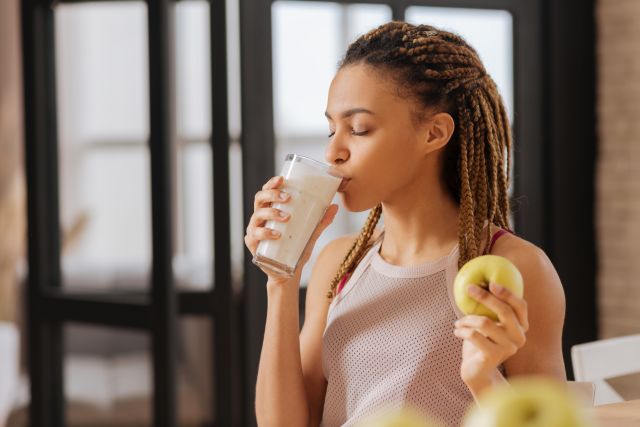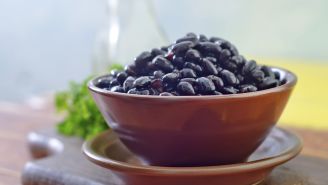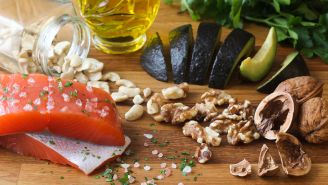Updated on May 16, 2025.
If you want to build and maintain muscle—especially as you age—experts recommend doing at least two sessions of strength training each week.
Strength training, also called resistance training, is any exercise where you set your muscles against a resisting force. That could mean lifting weights, using elastic bands, or pushing or pulling your body against gravity, such as by doing squats, push-ups, or pull-ups.
As crucial as it is to build and maintain muscle strength, it’s equally important to nourish your muscles so they grow. Having a protein-rich snack after strength training can give that muscle-building process a boost.
If you’re new to strength training, you might feel it’s necessary to invest in high-tech protein powders and muscle-building formulas. Not so, suggests research. The path toward healthy, replenished muscles may be as simple as a trip to your refrigerator.
Muscle growth, explained
To understand how to nourish your muscles, it helps to know how they grow.
When you perform resistance exercises, two important processes occur: muscle breakdown and muscle synthesis. When you challenge your muscles sufficiently, they begin to break down at a cellular level. That may sound scary, but the good news is that just as muscles break down, they rebuild themselves—stronger and often bigger.
To build muscle, these processes of breakdown and synthesis have to happen in balance: Your muscles need to be fed as they are broken down. The key nutrients that help muscle synthesis take place are carbohydrates and protein. The building blocks of proteins are called amino acids.
Many foods contain carbohydrates and protein. But not many contain the right amino acids to foster muscle growth while also being easily digested and absorbed into the body.
Milk for muscle building
Every protein source is made up of different amino acids, but it’s the type and proportion of amino acids in milk that sets it apart. Milk contains all nine of the so-called “essential” amino acids. They’re “essential” because they’re not created naturally by the body. They have to be acquired through diet.
One of those essential amino acids, leucine, is especially helpful for muscle growth. Leucine isn’t produced by the body—it must be consumed from protein sources like meat, milk, eggs, and soy. Milk may be a particularly good option after a workout because it’s a high-quality, easily available protein that doesn’t require cooking or preparation. In addition to leucine, milk contains electrolytes, carbohydrates, and vitamin D, which is vital for muscle growth.
A range of studies suggest that drinking milk after working out can build muscle mass. For example, in one 2021 article in Frontiers in Nutrition, participants who exercised and drank milk increased strength about 20 percent more than those who exercised but didn’t consume dairy. The milk group drank one cup at breakfast and another at lunch or post-workout. Both groups consisted of adults ages 50 and older.
Getting the protein you need
If you’re lactose intolerant, consider lactose-free milk, which is also a good source of protein. If milk just isn’t your thing, you can still reap some muscle-building rewards by consuming other proteins after a workout. Nuts, nut butter, hard-boiled eggs, and other dairy products such as Greek yogurt or string cheese are popular choices.
Whatever source you choose, just make sure you have protein in your system before working out. Also remember to include it within two hours after exercise for best results.
And be sure to get enough protein each day overall—especially if you are exercising regularly. For men, that is about 56 grams; for women, it’s about 47 grams. (This is based on the recommended daily dietary allowance of 0.36 grams of protein per pound of body weight.)
Older adults over 65 years of age may need more protein, since their bodies don’t use it as efficiently as the bodies of younger people. That means they may need upwards of 0.45 to 0.54 grams of protein per pound each day, which works out to about 68 to 81 grams of protein.
One 12-ounce glass of reduced-fat 2% milk contains just over 12 grams of protein. Pouring a tall glass can help your muscles get on their way to recovering and rebuilding from your workout.







